We are as excited as ever to spend another year working together with you! From all of us here at CASA, we wish you a successful and very Happy New Year.
As we say goodbye to 2021 and forge ahead into 2022, it’s not yet clear when things will return to normal, or what the “new” normal might look like. Regardless of what 2022 brings, one thing is certain: CASA will continue to focus our efforts on advocacy, communications, and engagement on behalf of our members. We are proud to be your representatives and the face of California’s clean water community in the state and in Washington D.C. We also know how important your input and participation is to our effectiveness, which is why we are continually looking for ways to add more value for our members. CASA has a whole host of LISTSERVs, workgroups, and committees that we encourage you to join and participate in. Our team of experts is always here to answer questions and get your perspective. Together, we have a strong voice. We appreciate your support and look forward to seeing you all in the year ahead! The CASA staff are hard at work planning for the year, take a look below at what you can expect from the program areas:
Program Updates for 2022
Regulatory
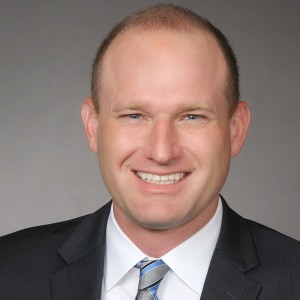 2022 looks to be another incredibly busy year on the regulatory front. We anticipate the reissuance of the Sanitary Sewer System Waste Discharge Requirements (SSS WDR) early in the year, and major ongoing initiatives include the next phase of the PFAS investigative order as well as an anticipated Ocean Plan amendment for ocean acidification and hypoxia water quality objectives. There is also quite a bit of funding for wastewater agencies this year, including the arrearages program set to launch in February as well as the $650M budget allocation for wastewater programs, much of which will go to septic to sewer projects.
2022 looks to be another incredibly busy year on the regulatory front. We anticipate the reissuance of the Sanitary Sewer System Waste Discharge Requirements (SSS WDR) early in the year, and major ongoing initiatives include the next phase of the PFAS investigative order as well as an anticipated Ocean Plan amendment for ocean acidification and hypoxia water quality objectives. There is also quite a bit of funding for wastewater agencies this year, including the arrearages program set to launch in February as well as the $650M budget allocation for wastewater programs, much of which will go to septic to sewer projects.
We anticipate significant discussion surrounding water conservation regulations and an associated study of impacts on wastewater management, as well as the development of policy options for biostimulatory substances and biological Integrity. CASA will continue to work with regulatory agencies on many significant issues, including our work with the Ocean Protection Council on the statewide microplastics strategy and ocean acidification research projects. As always, we encourage you to participate in our monthly regulatory workgroup calls, read our monthly updates that cover many of these topics, and lend your voice to our regulatory advocacy in the upcoming year! Please reach out to Jared Voskuhl with any questions.
State Advocacy
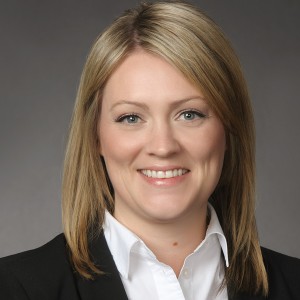 The Legislature returned to Sacramento to kick off the 2022 Legislative Session on Monday, January 3rd. Over the Fall the Legislature moved all staff into a new building as work gets underway to renovate the historic Capitol for the next five years. The new building is being referred to as the “swing space” and houses all Legislative staff and the Governor’s office and staff, and features several large hearing rooms and public spaces. However, despite being in a new location it appears that most meetings and hearings will continue to utilize videoconferencing options, many staff will continue working remotely, and the availability of in-person meetings with legislative staff will be determined by each individual office.
The Legislature returned to Sacramento to kick off the 2022 Legislative Session on Monday, January 3rd. Over the Fall the Legislature moved all staff into a new building as work gets underway to renovate the historic Capitol for the next five years. The new building is being referred to as the “swing space” and houses all Legislative staff and the Governor’s office and staff, and features several large hearing rooms and public spaces. However, despite being in a new location it appears that most meetings and hearings will continue to utilize videoconferencing options, many staff will continue working remotely, and the availability of in-person meetings with legislative staff will be determined by each individual office.
This is the second year of the two-year session, and there will be several key deadlines in January to move bills that were held over from last year as “two-year bills.” Additionally, the Governor is required to release his 2022-23 Budget plan by January 10th. In this January Budget roll out he will reveal his plans to spend another large Budget surplus, which the Legislative Analyst’s Office (LAO) has predicted will be around $31 billion this year. The bill introduction deadline is February 18th, and policy committee and budget subcommittee hearings will begin in March and continue through the Summer.
We are expecting a busy year in water policy. Many key issues will be considered in the 2022 Legislative Session, including indoor water conservation targets, the 50th anniversary of the Clean Water Act, legislation relating to PFAS and microplastics, and much more. For a preview of the upcoming Legislative Session please join us at the CASA State Legislative Committee meeting on Friday, January 21st. Please reach out to Jessica Gauger with any questions.
Biosolids and Air Quality, Climate Change, & Energy (ACE)

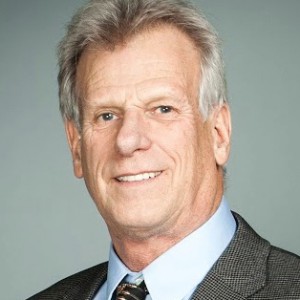 This year, CASA will work to facilitate the Implementation of SB 1383 regulations which require a 75% diversion of organics from landfills by 2025 to achieve a 40% reduction in methane emissions statewide. Work will include: meeting with County’s to revise restrictive or prohibitive ordinances on biosolids land application to create a level playing field and equal access as required in the regulations; engaging with members and CalRecycle to streamline the process to allow additional biosolids technologies and end uses to qualify as a reduction in landfill disposal; maximizing procurement opportunities for biogas and biosolids as stipulated in the regulations including working with the solid waste sector to facilitate the cleanup of diverted organic waste and CASA members to leverage co-digestion opportunities; and informing members of funding opportunities to facilitate implementation.
This year, CASA will work to facilitate the Implementation of SB 1383 regulations which require a 75% diversion of organics from landfills by 2025 to achieve a 40% reduction in methane emissions statewide. Work will include: meeting with County’s to revise restrictive or prohibitive ordinances on biosolids land application to create a level playing field and equal access as required in the regulations; engaging with members and CalRecycle to streamline the process to allow additional biosolids technologies and end uses to qualify as a reduction in landfill disposal; maximizing procurement opportunities for biogas and biosolids as stipulated in the regulations including working with the solid waste sector to facilitate the cleanup of diverted organic waste and CASA members to leverage co-digestion opportunities; and informing members of funding opportunities to facilitate implementation.
The State Water Board has accepted CASA’s offer to provide staff Biosolids 101 training and CASA will extend the offer to other regulatory agencies including CalRecycle, CARB, and CDFA, as well as Counties.
Greg Kester has recently been appointed by the USEPA to serve on their Science Advisory Board expert biosolids panel to review revised risk assessment models (screening and full assessment) and to develop guidance for their use.
We will work with CARB and local air districts to ensure sustainable use of renewable biogas from wastewater treatment plants as transportation fuel, for pipeline injection, and for on-site use for power and heating. This includes addressing the statewide push to electrify all vehicles and the threat it presents to implementation of SB 1383. CASA will begin a 5-year collaboration with CARB, local air districts, and members to develop and conduct an air toxics scanning and emissions quantification program to determine which compounds will need to be reported beginning in 2029 (for the year 2028) and beyond to ensure as the state reduces greenhouse gas emissions that is also limits air toxics emissions.
Work will continue with SWRCB and other state agencies on PFAS issues, including understanding the analytical results from the statewide order and addressing industrial discharges and other point sources. We will be working with Dr. Ian Pepper and our members on the national PFAS biosolids research project to evaluate leaching to groundwater potential and crop uptake from land applied biosolids. We also look forward to working with two of the four selected teams receiving EPA grants to evaluate unregulated pollutants in biosolids. Please reach out to Greg Kester or Sarah Deslauriers with any questions.
Federal Advocacy
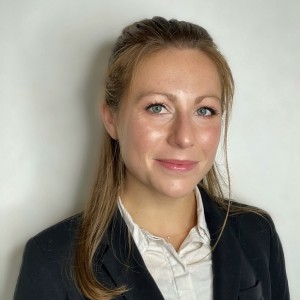 The final session of the 117th Congress will face a host of policy matters over the next year. Within this agenda, there are several federal priorities CASA’s Federal Legislative Committee will pursue. At the top of the priority list is addressing the labeling of nonflushable wipes, addressing efforts to impose PFAS cleanup liability, securing a waiver from Buy America mandates that could slow construction of projects, and enhancing the resiliency of clean water infrastructure.
The final session of the 117th Congress will face a host of policy matters over the next year. Within this agenda, there are several federal priorities CASA’s Federal Legislative Committee will pursue. At the top of the priority list is addressing the labeling of nonflushable wipes, addressing efforts to impose PFAS cleanup liability, securing a waiver from Buy America mandates that could slow construction of projects, and enhancing the resiliency of clean water infrastructure.
Last year, CASA worked with Representatives Alan Lowenthal (D-CA) and Lisa McClain (R-MI) that led to the introduction of the WIPPES Act (H.R. 4602). H.R. 4602 is the corollary to CASA’s “Do Not Flush” labeling law enacted last year in California. This year, we will continue to work with the Water Environment Federation, National Association of Clean Water Agencies and other stakeholders to secure additional cosponsors for H.R. 4602 that can lead to House consideration of the bill. CASA will continue work to secure introduction of a companion Senate bill this year.
The first session of the 117th Congress saw an increased urgency by lawmakers to respond to the contamination threat posed by PFAS chemicals. The most decisive action was last year’s House passage of the PFAS Action of 2021 (H.R. 2467). Among H.R. 2467’s provisions is a directive that U.S. Environmental Protection Agency (USEPA) designate PFOA and PFOS as hazardous substances under Comprehensive Environmental Response, Compensation, and Liability Act (CERCLA) and potentially expose wastewater and water agencies to liability for the handling and disposal of PFAS. The bill further directs USEPA to determine whether to designate all PFAS chemicals as hazardous substances under CERCLA. USEPA included a similar regulatory action item in its PFAS Strategic Roadmap that the Agency will rely upon to guide regulatory actions. CASA worked diligently last year advocating before Congress about the adverse consequences a hazardous designation would impose on clean water agencies, including creating liability for the disposal or cleanup of sites where biosolids have been disposed of if such biosolids were determined to contain PFAS. This year, CASA will continue to urge Congress to provide an exemption from CERCLA PFAS liability for the clean water sector, based upon the fact that CASA agencies are not responsible for the presence of PFAS in the environment and the fact that such liability violates CERCLA policy that the polluter pays principle.
Last year’s passage of the Infrastructure Investment and Jobs Act (IIJA) included significant investment measures for the clean water sector. However, it also included a Build America, Buy American mandate that effectively requires all projects funded with IIJA assistance to use only U.S. made manufactured products, expanding beyond the existing American Iron and Steel mandate. This means that federal clean water infrastructure assistance programs will require applicable projects to comply with Buy American (BA) mandates for project construction materials and technologies. Such a mandate requirement, barring a successful wavier process, would hinder the speed and effectiveness of water treatment systems by restricting available technologies and materials critical to the performance of treatment equipment systems. CASA is working with fellow water sector stakeholders to engage with the Office of Management and Budget (OMB) and USEPA to express the water sectors’ concerns about what a BA requirement would mean for water treatment systems and request that a general public interest waiver for products and technologies that demonstrate the ability to improve energy and water efficiency and quality, utilize commercial information technology, or replace existing products as part of a specialized system that does not lend itself to a place of origin criterion.
Finally, when it comes to addressing the realities of a changing climate and the impacts this will have for water supplies and security, CASA will continue our advocacy efforts with both Congress and federal agencies to craft federal solutions that support modernizing the nation’s clean water infrastructure. Central to this will be incorporating “smart water” technologies into treatment systems and equipment. Last year, CASA supported the introduction of the bicameral, bipartisan Water Infrastructure Modernization Act to provide federal assistance to support investments in smart water technologies. CASA will continue to work with the bills’ sponsors to advance the bill through the legislative process.
The second session of Congress will be exceptionally busy as lawmakers work to complete action(s) on policy priorities, during a time when November mid-term elections will influence the opportunities to find common ground on legislative proposals. Despite the hectic and packed legislative schedule, we will be working tirelessly to fulfill CASA’s federal policy priorities and we look forward to updating and engaging with membership as the year progresses. Please reach out to Sarah Sapirstein with any questions.
Communications
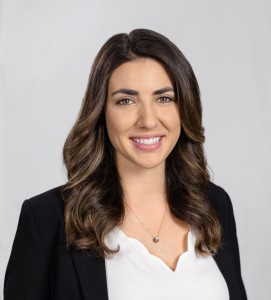 The communications program looks forward to another year of providing timely and relevant information to members, legislators, and the public on clean water and beneficial reuse issues. This year we will be busy at work building a new outreach campaign focused on PFAS which will include a myriad of materials to aid in public education. We will be continuing our work with the Responsible Flushing Alliance (RFA) as they produce a 5-year education campaign in compliance with the recently passed wipes bill, AB 818. We will continue to assist on their creative materials for the outreach campaign, including on their overall messaging as well as specific outreach materials that would be helpful and usual for agencies to incorporate into their outreach with their customers. As always, we will work to increase the visibility of clean water agencies as essential protectors of public health and the environment within the communities they serve.
The communications program looks forward to another year of providing timely and relevant information to members, legislators, and the public on clean water and beneficial reuse issues. This year we will be busy at work building a new outreach campaign focused on PFAS which will include a myriad of materials to aid in public education. We will be continuing our work with the Responsible Flushing Alliance (RFA) as they produce a 5-year education campaign in compliance with the recently passed wipes bill, AB 818. We will continue to assist on their creative materials for the outreach campaign, including on their overall messaging as well as specific outreach materials that would be helpful and usual for agencies to incorporate into their outreach with their customers. As always, we will work to increase the visibility of clean water agencies as essential protectors of public health and the environment within the communities they serve.
Updates and refreshes will continue on the CASA Connects newsletter as well as the CASA website. We look forward to preparing toolkits and materials, hosting workshops, creating presentations for conferences, and developing strategic information campaigns. This year we will also ramp up special projects like the CASA Awards of Excellence Program and the CASA Education Foundation. To join in on the conversation and development of these projects, please contact Alyssa Downs.




 @CASA_CleanWater
@CASA_CleanWater